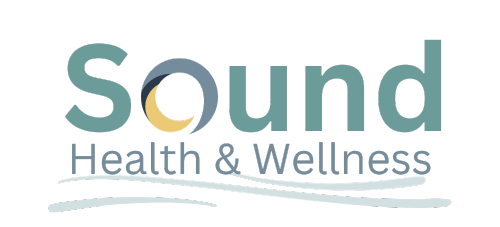From Background Noise to Center Stage: Taking Control of Your Anxiety for a Healthier You
Are you used to your anxious thoughts and think you have a handle on them and they aren’t really interfering in your life?
Or perhaps you are noticing your anxious thoughts and you are watching them get worse and you have no idea how to get a handle on them?
What’s most common is a combination of the above two scenarios.
We might be rolling along with a low hum of anxious, worried thoughts rumbling in the background but not even really registering them (They’re just always there! That’s my life!), when something happens in our lives, either personal, healthwise, or unnerving politics or the economy dips, and suddenly those anxious thoughts take centerstage in our awareness and we can’t even see beyond them.
Wherever you are in this rollercoaster ride right now, it really matters to try to get a handle on it.
Why is it so important to focus on reducing your anxiety?
The reason is that anxiety is a mind/body experience. We are having worried thoughts but there is so much that goes along with that in our bodies that can cause us dis-ease. Here’s just a few things that happen and can happen when we are in a state of anxiety, either temporarily or chronically:
Cardiovascular System: Anxiety can increase heart rate and blood pressure, which over time can lead to an increased risk of heart disease and other cardiovascular issues.
Respiratory System: Anxiety can lead to rapid, shallow breathing or hyperventilation, which can exacerbate conditions like asthma and chronic obstructive pulmonary disease (COPD).
Digestive System: Anxiety can cause stomach aches, nausea, and digestive issues such as irritable bowel syndrome (IBS). It can also lead to changes in appetite and weight.
Musculoskeletal System: Anxiety can cause muscle tension, leading to headaches, back pain, and overall bodily discomfort.
Immune System: Chronic anxiety can weaken the immune system, making the body more susceptible to infections and illnesses.
Sleep Patterns: Anxiety can lead to insomnia or disrupted sleep, which can affect overall health and well-being.
Skin: Anxiety can exacerbate skin conditions like eczema, psoriasis, and acne. Stress-induced hives and rashes are also common.
Endocrine System: Anxiety can cause the release of stress hormones like cortisol, which can impact various bodily functions and lead to long-term health issues such as weight gain and diabetes.
Reproductive System: In women, anxiety can affect menstrual cycles and fertility. In men, it can impact testosterone levels and erectile function.
Behavior and Lifestyle: Anxiety can lead to changes in behavior, such as avoiding social situations, becoming overly cautious, or developing unhealthy coping mechanisms like substance abuse.
Overall, anxiety is a much more complex condition than we typically realize. If we ignore it, it influences many aspects of our physical health and daily life.
Luckily, there is so much we can do to work on reducing our anxiety.
Here are three easy tips to help reduce anxiety:
Practice Deep Breathing:
How to Do It: Sit or lie down in a comfortable position. Inhale slowly through your nose for a count of four, hold your breath for a count of four, then exhale slowly through your mouth for a count of four. Repeat this process several times.
Why It Works: Deep breathing helps activate the body's relaxation response, reducing the stress response and calming the nervous system.
Engage in Physical Activity:
How to Do It: Incorporate at least 30 minutes of physical activity into your daily routine. This can be anything from walking, jogging, yoga, or dancing to any form of exercise you enjoy.
Why It Works: Physical activity releases endorphins, the body's natural mood lifters. It also helps reduce the levels of stress hormones like cortisol, providing both immediate and long-term benefits for anxiety reduction.
Practice Mindfulness and Meditation:
How to Do It: Find a quiet place to sit comfortably. Close your eyes and focus on your breathing. If your mind starts to wander, gently bring your attention back to your breath. There are also many guided meditation apps and videos available that can assist you.
Why It Works: Mindfulness and meditation help you stay present and reduce the tendency to get caught up in anxious thoughts. Regular practice can rewire your brain to respond to stress more calmly.
Finally, here’s a quote that sums up the idea of being able to roll with life stressors and be happy and healthy:
"Peace of mind is not the absence of conflict from life, but the ability to cope with it." — Unknown

